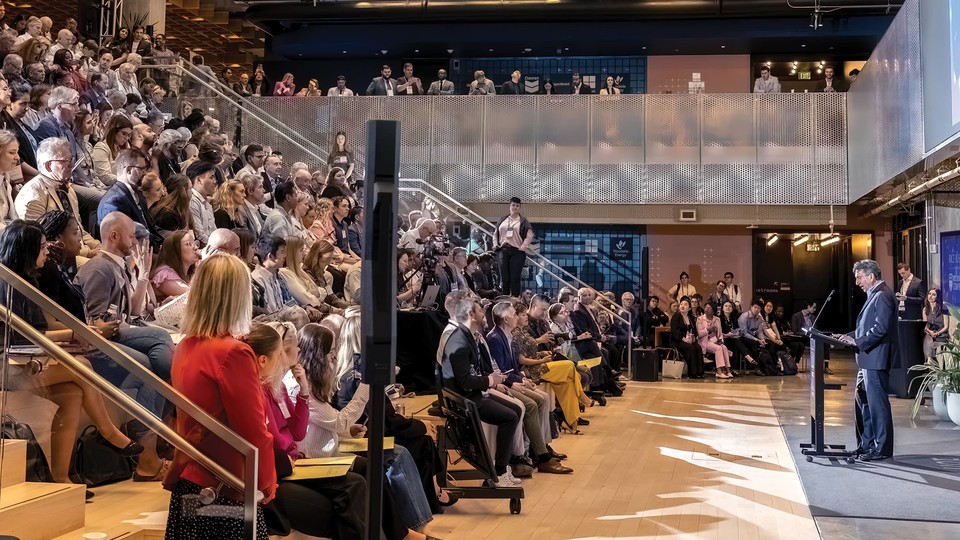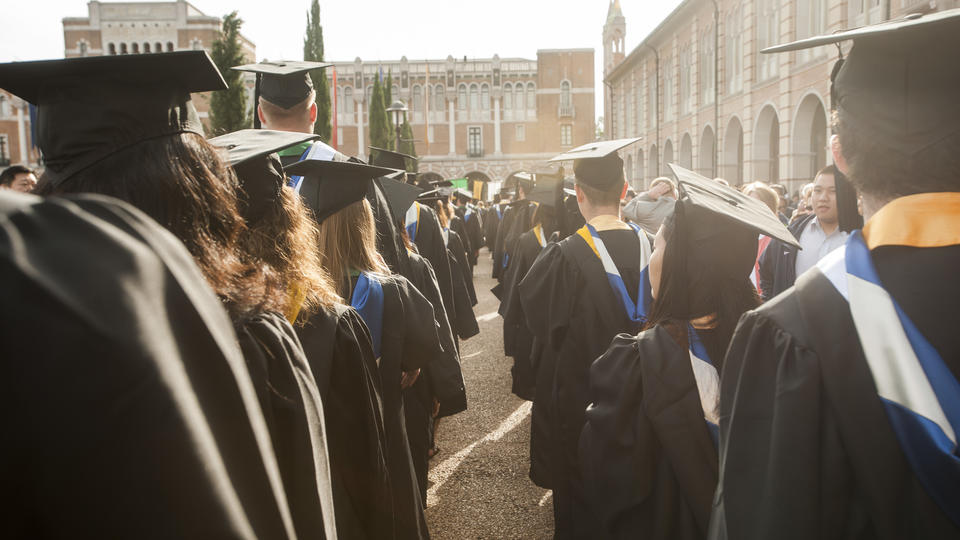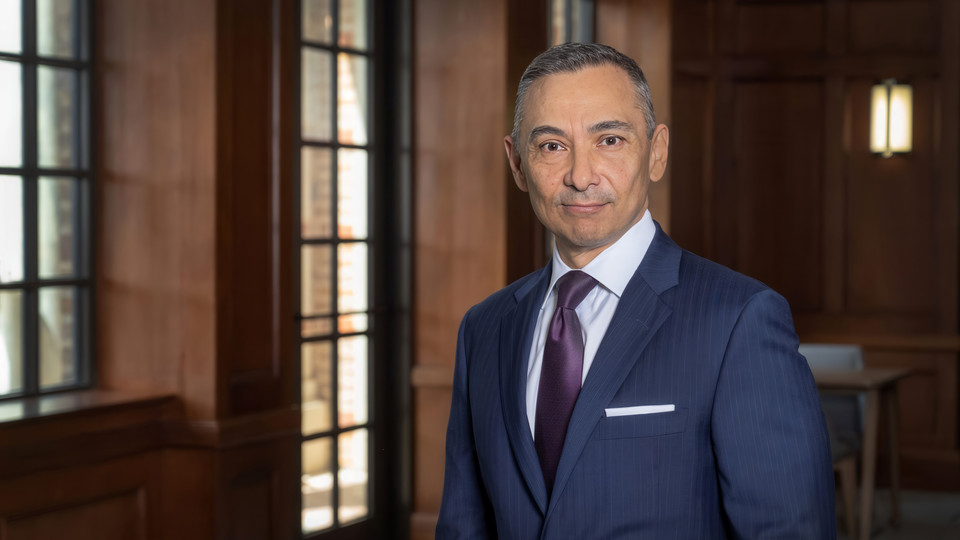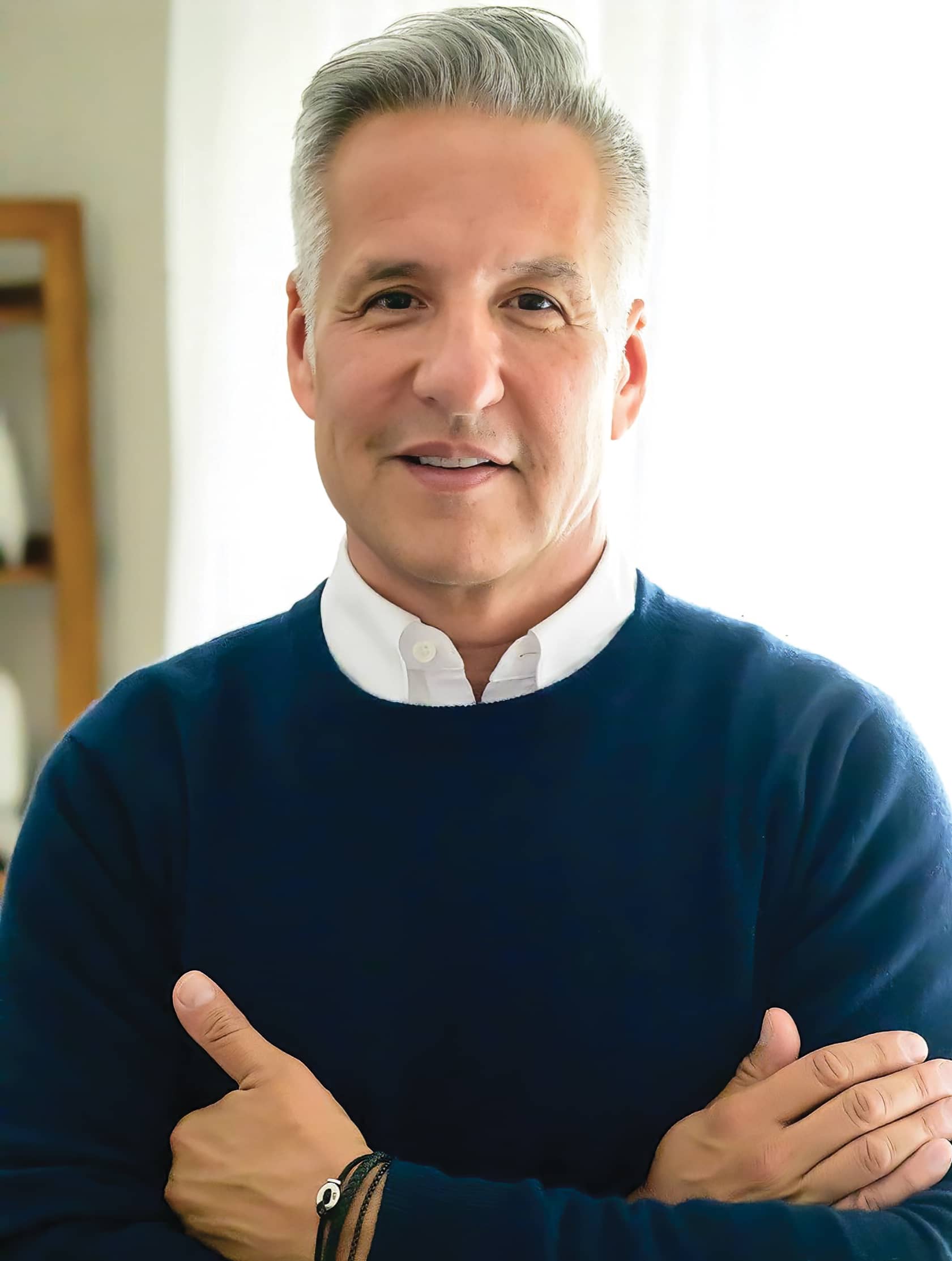
Retail Remix
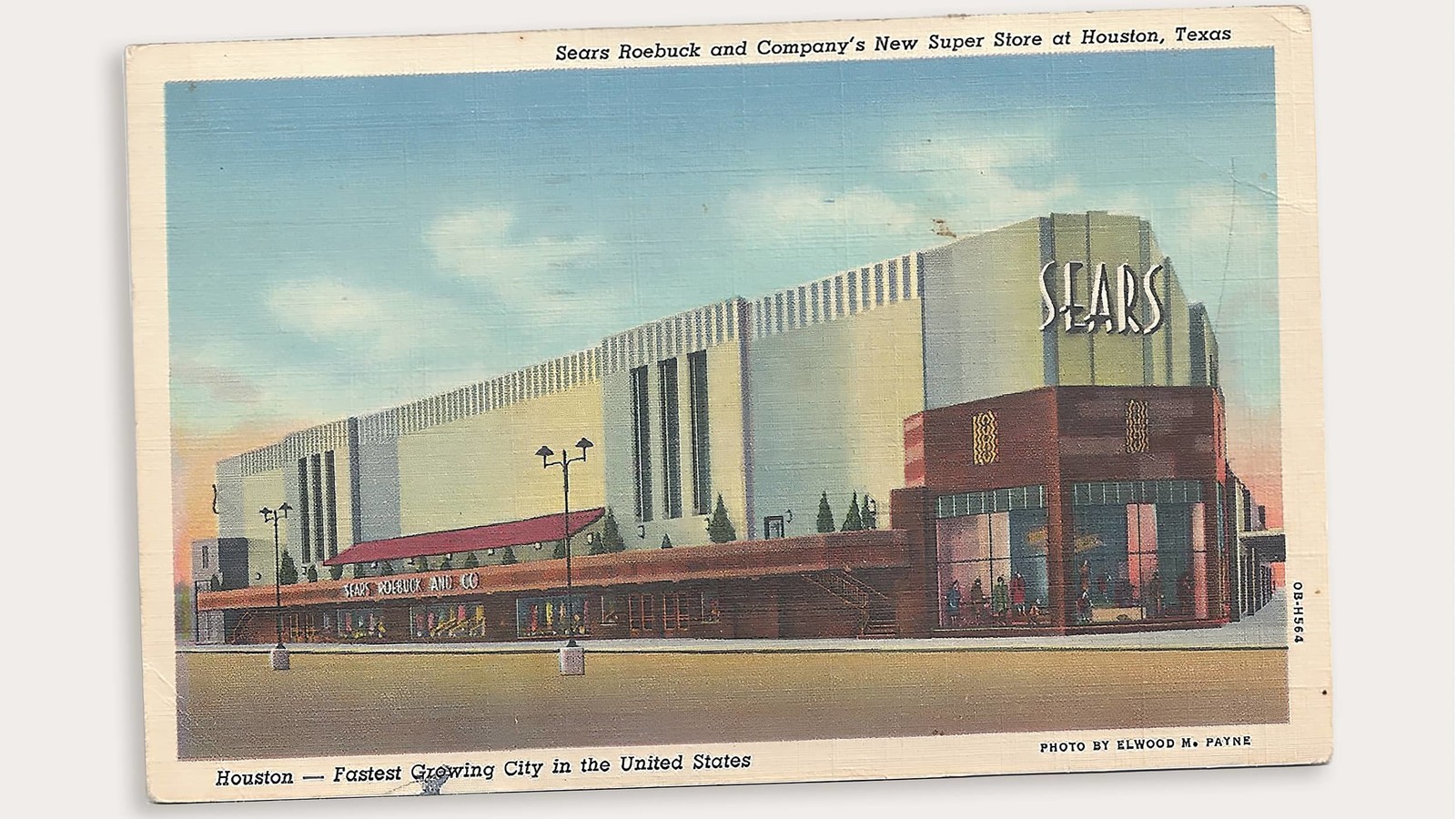
Ramon Marquez ’25 is reinventing iconic retail brands by running them like startups.

Ramon Marquez '25 has been predicting what customers want since he was 5. His grandfather had a general store in the small border town of Zaragoza, Chihuahua, Mexico — the kind where customers would approach the counter and ask for items, which his grandfather would dutifully go and track down for them. Marquez would visit his grandfather’s store on weekends, helping work the register and grabbing items for customers. “One of the things that I loved the most was to guess what they were going to ask for,” he recalls. “It became this kind of game for me.”
It was a fortuitous first experience with retail; Marquez has since led a more than 30-year career at some of the world’s most famous retail brands. “If you look at what my role has been throughout my professional life, it has been to predict what people are going to buy,” he says.
After graduating from the University of Texas at El Paso — where he briefly ran a side business selling sweaters to his fellow students — he joined JCPenney to help open their Mexican division in the wake of NAFTA. Over the next 20 years, he would hold senior roles at Old Navy, Abercrombie & Fitch, American Eagle and New York & Company — each one selected strategically. “I’ve always been very careful about picking who I work for,” he says. “At the beginning, it was JCPenney … but when I went to Old Navy, the idea was that I wanted to go into a fast-paced younger company that was in growth mode.” He joined when the brand had just 200 stores and left when it had ballooned to over 1,000.
Seven years ago, Marquez became the head of retail at Transformco — which manages Sears and Kmart, two of America’s iconic-but-struggling legacy retailers — taking on a job many industry insiders viewed as impossible: not just reviving the brands, but reimagining their future.
The jump to Sears and Kmart was not an obvious move for Marquez. “I went to the Kmart store on 34th Street [in New York City] in Penn Station … and I said, ‘There’s no one — no one — who can clean this up,’” he remembers. “And then I walked away.” But something pulled him back. “What if I am that person?” he asked himself. He joined the company just weeks before Kmart’s bankruptcy filing.
What followed was a crash course in chaos management. “I didn’t know if, in the wake of the bankruptcy, I was going to have to lay off 200 people or if we were even going to continue to operate,” he says. But what Marquez soon came to realize was that this role was no longer limited to being the guy who can correctly guess what the customer wants. His role was also to redefine the culture of the organization. “They hired me to be the leader of these people — and to pick up the pieces and push the company forward,” he says.
That required a mental pivot. “There’s an ego behind it, right? Because I refused to be the person that got left behind, just shutting things down.”
Instead, he reframed the situation: “A turnaround,” he says, “is just a startup in disguise.”
That entrepreneurial mindset has defined Marquez’s approach.
The first thing he had to do was take an inventory. “We needed to understand what we are really good at, what our assets are and what our liabilities are,” he says. “Obviously you want to get rid of your liabilities as soon as possible. And then we needed to stay very clear on who the customer is and what opportunity we have with that customer. Because chasing a customer who has left and is not coming back is just not the right thing to do.”
He also had to learn to operate without the kind of available assets he had at his previous positions. “Scarcity breeds innovation,” he says. “I worked for companies that had it all … here, you have to think through it. But as long as you understand who your customer is … you’ll figure it out.”
In the early days there wasn’t much to work with — except, that is, for the stores’ existing real estate. “There are brands and partners that want to get into their real estate, but they don’t want to lease the entire store,” says Marquez. “So I partnered with them, and they would bring their product into my stores," Marquez says. “I didn’t have to spend the money on the inventory … and then we would split the commissions.”
He also introduced ready-to-assemble furniture in Sears locations. His team was skeptical at first. “They said, ‘This could not sell here,’” he says. “But it worked so well there that we actually brought it to the Kmart stores.”
As a manager, Marquez leaned into a leadership style that focused on building trust. “We’re a smaller team, more dynamic. We pick up the phone, and we have open communication,” he says. “I’m also in the stores all the time. I talk to sales associates, they pick up the phone, they email me.” When the pandemic hit, the company embraced remote work and created a more flexible team culture. “There’s a lot of trust among us,” he says.
Those open lines of communication have been critical to fostering innovation, says Marquez.
“A lot of companies, when things are tough, the first thing that goes is the creativity. So a lot of the innovation just gets cut and everybody goes for the safe option — but is it the safe option that got you to where you are? It kind of works against you.”
Marquez also credits a new humility in helping him lead innovation at the stores, which includes keeping an open ear for ideas. “I love talking to people that are not in retail or that are not in my business about things I’m going through, because they have a completely different perspective — that is not emotional, that is not brand-driven, that just comes from a different place,” he says.
Marquez wrapped up an MBA at Rice in May 2025, an experience he says allowed him to reflect and shape his leadership style and his definition of success. “It’s the people I work with — and how people feel at the end of the day and how I feel at the end of the day — that’s what matters,” says Marquez. He’s more patient these days, too. “I don’t react to things the way I used to,” he said. “I was more impulsive before. It was all about how fast I could get to an answer. And now it’s more about: Let’s think about it, see what our options are, and then make the best decision.”
But even with all that’s changed for him, the earliest lessons remain relevant. “Customer satisfaction is still paramount,” says Marquez. That 5-year-old kid at his grandfather’s store, eager to make a sale, is still alive and well. “If you come to the store and you stop me, and you tell me how much you love what we have, you make my day.”
